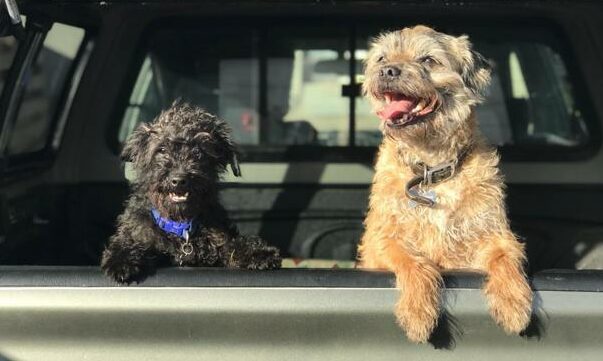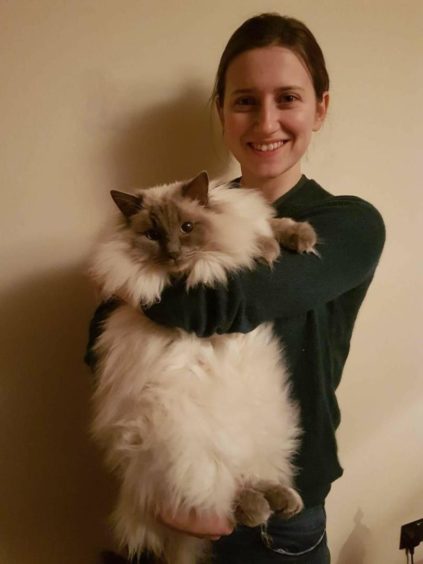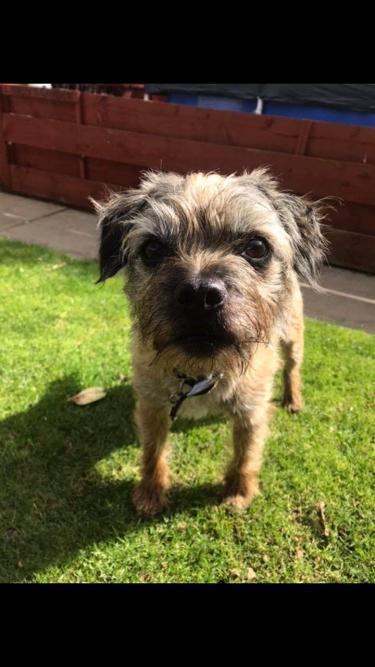A vet dealing with an outbreak of “kennel cough” is warning dog owners not to skip on the annual vaccination – even if Covid cancelled their holiday.
Iona Rule suspects a rise in cases of the dog cough in Nairn could boil down to fewer pets being vaccinated because they are not being placed in boarding kennels this year.
Kennel owners usually require proof of vaccination but fewer people are jetting off due to the pandemic.
And some vets do not routinely offer the vaccine.
Ms Rule, who is a member of the team at the Moray Coast Vet Group, said: “I think there’s maybe fewer people getting the kennel cough vaccine with them not going on holiday this year, but it’s worth getting it if your dog is mixing with other dogs on walks and things.”
Ms Rule said the past week has seen a sharp rise in concerned owners turning up at the Nairn surgery.
“We are seeing at least one dog per day, probably more, and we saw two or three on our Saturday clinic which was only on for an hour and a half. That’s a lot for such a short time period,” she said.
‘Two sick dogs in our family’
Earlier this week dog owner Irene Walker warned other dog owners to be careful after her 11-year-old border terrier Crosby and her three-year-old Jackadoodle picked up the contagious cough.
Although somewhat improved since Sunday, poor Crosby has been coughing all through the night and has been given an anti-inflammatory from the vet.
Mrs Walker, a solicitor who works in Inverness, believes Crosby either picked the kennel cough up from another dog they were with a couple of weeks ago or on one of their walks.
She wanted to warn other dog owners the disease may be doing the rounds.
She said: “It’s clearly highly contagious and I won’t be walking them for a while. I’m not sure Crosby’s over the worst just yet, he’s only had it a few days.
“He’s still coughing but seems to be more peaceful once he’s settled at night.
“Our other dog Frank had a sticky eye and his nose was a bit runny but he’s only three so he’s a good bit younger. He started coughing yesterday but he’s not coughing much so fingers crossed it won’t get any worse.”
‘Constant’ coughing
Mrs Walker added: “The first night was the worst. By the time he went to bed it was just constant. Crosby maybe had two minutes at a time between coughing bouts and this went on for the whole night.
“I was giving him syringes of hot water and honey to try and soothe his wee throat and see if that would settle him. It really sounds like he’s choking. And because he’s older too, I’m all the more concerned.”

Three-year-old Frank has milder symptoms.
What is kennel cough?
Bordetella bronchiseptica is the most common bacterial agent responsible for kennel cough in dogs.
It gets its name because it is commonly picked up in kennels, however it can easily be spread in other ways, which means dogs that have never been anywhere near a boarding kennel can catch it.
According to the PDSA, kennel cough is an airway infection that causes a nasty cough in dogs.
It is most common in areas where lots of dogs gather and is spread in the air and on surfaces.
The charity warns dogs with kennel cough should be kept away from other pets and public spaces while ill, and for two to three weeks afterwards.
Symptoms treatment and vaccination
Symptoms usually take between three and 14 days to develop, and then last for one to three weeks.
Most dogs develop a hacking cough and stay generally well, but puppies, older dogs, and poorly dogs can develop more serious symptoms, including a high temperature or reduced appetite and even pneumonia.
The illness can be treated at home with most cases without any medication.
However, pets that become seriously unwell can receive antibiotics or anti-inflammatories.
The annual Bordetella vaccine had help to fend off the illness.
While the disease usually affects dogs, other animals such as cats, rabbits, horses, mice, and guinea pigs, can also develop it.



